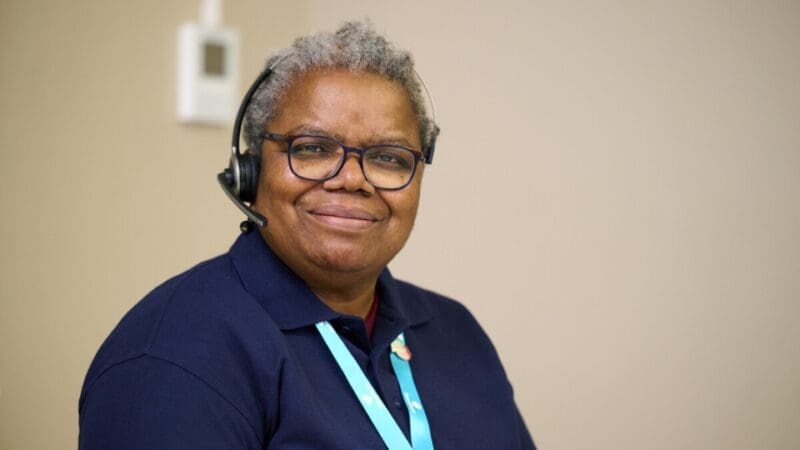
How we can support you
Whether you have a question that needs an immediate answer or need emotional support when life feels overwhelming, these are the ways our dementia specialist Admiral Nurses can support you.
Paul Edwards, Director of Clinical Services at Dementia UK, discusses the new documentary ‘Inside the Care Crisis’ and the current state of dementia and social care services.
The two-part documentary on the BBC, ‘Inside the Care Crisis’ presented by Ed Balls, offers viewers a very telling insight into the state of dementia and social care. From care homes to care at home, the programme gets us to experience the intricacies of social care; the challenges faced by providers and staff alike; and highlights the unique role of unpaid carers in supporting their loved ones with dementia.
It is a programme with stories that need to be told, and where different perspectives are laid bare for all to see.
In reality, the reason it is being made is because over many years, society has failed to truly address the needs of people with dementia and their families.
Over the past 30 years successive administrations have skirted the issue, kicking it into the long grass due to its complexity. This has meant chronic underfunding and a devaluing of the sector. We see that very clearly in the programme, where social care professionals feel that that they are largely ignored and don’t receive the parity of esteem as their health colleagues. We see families struggling to cope with the complexity that dementia often brings, with all of its practical and emotional effects.
There does seem to be a structural fault line in our society when it comes to dementia and social care. Funding is an issue of course and often lurks behind decisions made about services. Even more broadly than that, society simply hasn’t addressed how we can live with dementia in the 21st century.
For me, our dementia pathway is at best haphazard; from diagnosis to death, we haven’t really worked out what needs to be in place for people with dementia and their families. We have not really considered how people with dementia and their families are to live as well as they can, surrounded by the timely expertise from our health and social care professionals. Dementia seems to be everyone’s responsibility but no one’s at the same time. And without the plan, how do you know how to allocate funding to ensure that care and support is there in the first place?
We talk of an integrated approach but in reality, we are reliant on brilliant people doing their best in a system that does not really work for them, or for the scale of the challenge.
I was heartened to see the sensitivity in which the programme reflected the wonderful humanity of dementia care, family members and those who provide paid care. They do monumental things to support the complexities they encounter.
There is an urgent need to re-design health and social care when it comes to dementia care. No more grand gestures or aspirational words that carry little change or meaning. We need a national plan with people with dementia and their families at the centre, supported by well-respected health and social care professionals who are respected by us in society. We need to value the contribution these professionals make, and the role of unpaid carers should no longer be in the shadows. We need to re-think our funding for dementia care, right across the pathway so that no family is left with uncertainty and receives the timely support and care they need.
Good dementia care and support should be valued and seen as a ‘right’ for society, not as an afterthought. If we think otherwise, we risk losing more than just our services and our workforce, we lose our compassion.

Whether you have a question that needs an immediate answer or need emotional support when life feels overwhelming, these are the ways our dementia specialist Admiral Nurses can support you.

Angela Moore, who works as an Admiral Nurse at Rutland County Council, shines a light on social care from her own experiences working in the sector.